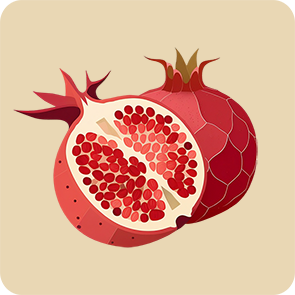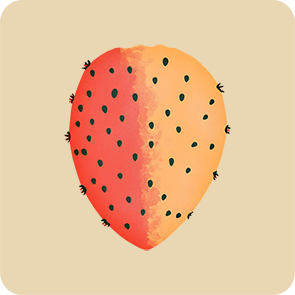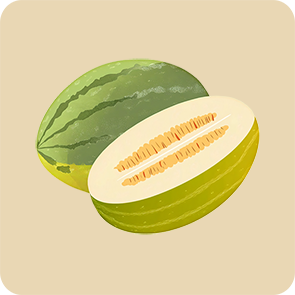
Grapefruit

Grapes

Guava
A tropical fruit packed with flavor and nutrients. With its sweet, slightly tangy taste and high vitamin C content, it’s a delicious and healthy snack.
170
1 medium fruit
(250 grams)
CAL
A
Nutri-Score
Very rich in vitamin C, fiber, and antioxidants, with moderate calories.
Value per 100 grams & per cup (165g):
68 kcal / 112 kcal
Protein
2.6 grams / 4.3 grams
Fats
0.9 grams / 1.5 grams
Carbohydrates
14.9 grams / 24.6 grams
Fiber
5.4 grams / 8.9 grams
Vitamins & Nutrients
- Vitamin C: Essential for immune function and skin health.
- Vitamin A: Supports eye health and skin regeneration.
- Folate: Important for cell division and healthy pregnancy.
- Potassium: Helps balance fluids and supports heart health.
Satiety and Feelings
Guava has a sweet, fragrant taste with a slightly crunchy texture, especially when eaten with seeds. It’s high in fiber, which helps promote digestion and keeps you feeling full longer.
What does 100 g look like?
A little more than one-half of a medium guava, which is about 1/2 of the fruit after peeling.
How many to eat to reach 2000/2500 calories?
About 15 guavas.
Daily Value per 100 grams %
Did you know?
Rich in Vitamin C: Guava contains more vitamin C than oranges—up to 4 times the amount, making it great for boosting immune health.
Seeds Are Edible: Unlike many fruits, guava seeds are edible and can even help with digestion due to their fiber content.
Origin: Native to Central America and Mexico, guava is now grown in tropical and subtropical regions worldwide.
Drawback ⚠️
High in Fiber: While fiber is beneficial, too much can cause digestive issues like bloating or gas, especially for those not used to high-fiber foods.
Allergic Reactions: Some individuals may be allergic to guava, experiencing symptoms like itching, swelling, or skin rashes.
High in Natural Sugar: Guava is relatively high in sugar, which may be a concern for individuals monitoring their blood sugar levels.


































































